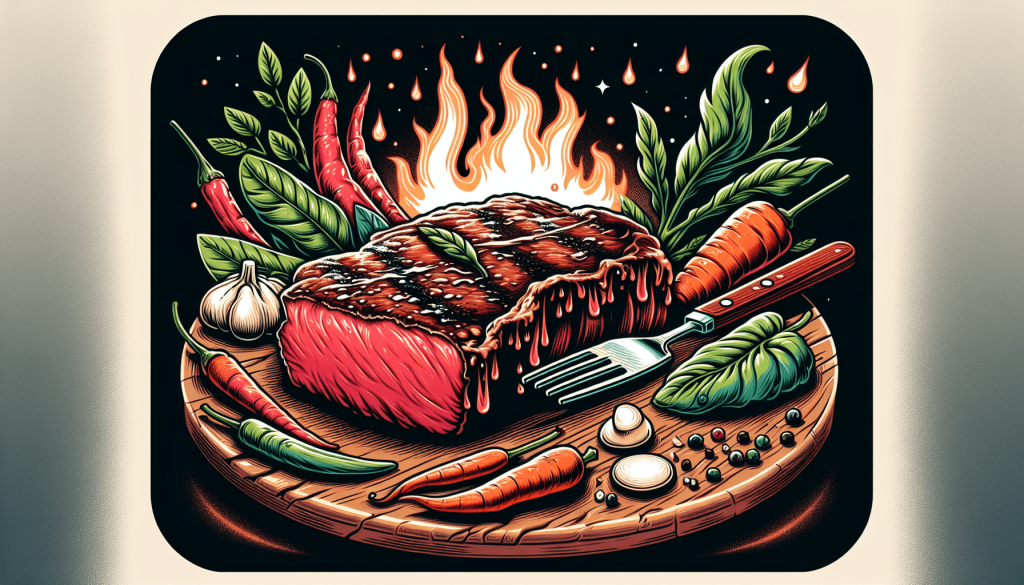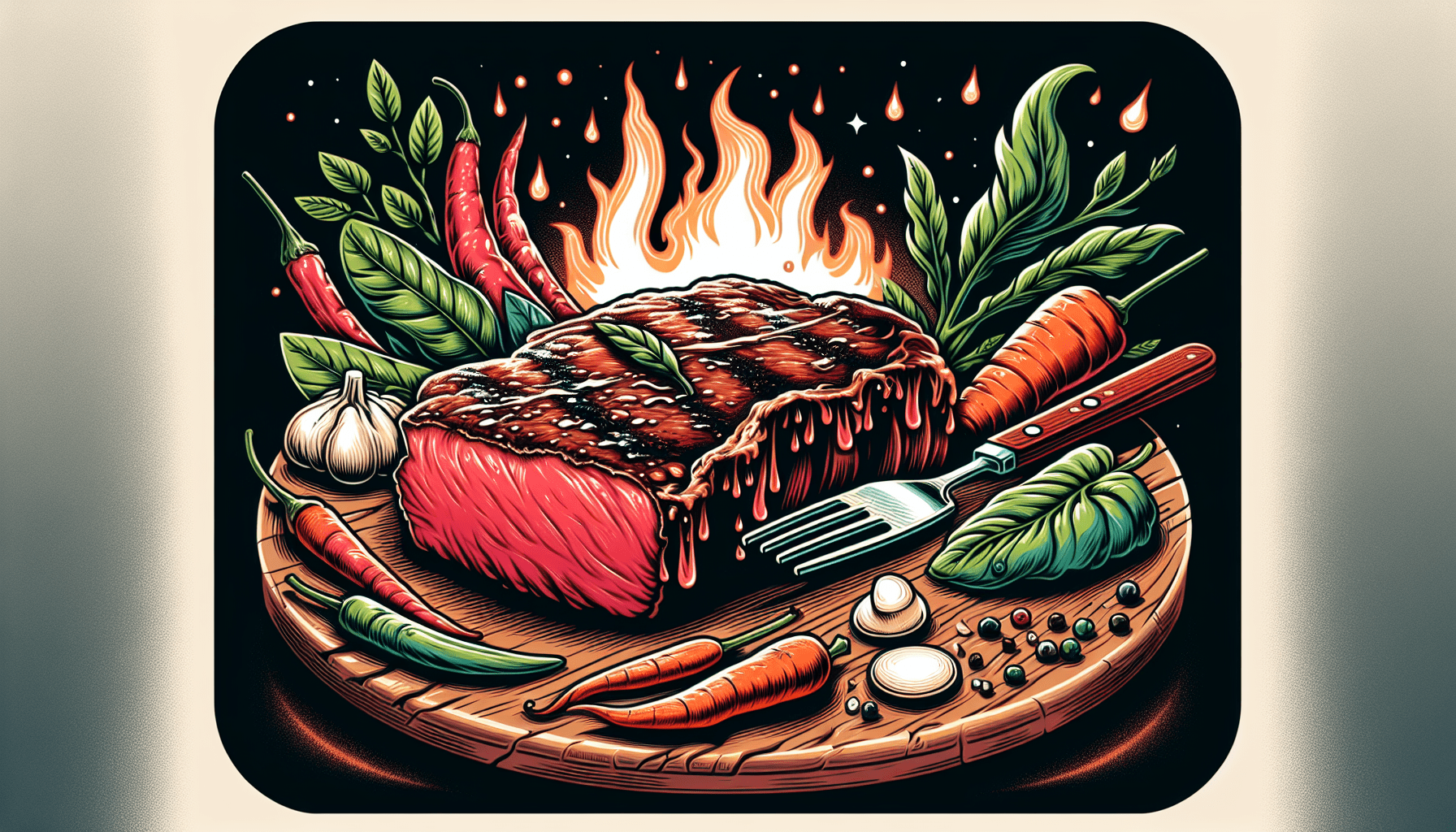Are you ready to embark on a new journey towards optimal health and well-being? Look no further than the Carnivore Diet! In this comprehensive guide, we will discuss everything you need to know about transitioning from a standard diet to the Carnivore Diet. You’ll discover the incredible benefits, step-by-step guidance on making the switch, and valuable tips to ensure a successful transition. Say goodbye to restrictive diets and hello to a lifestyle that nourishes your body and reaps the rewards of a meat-centric way of eating. Get ready to embrace the carnivorous path to wellness!
Understanding the Carnivore Diet
What is the Carnivore Diet?
The Carnivore Diet is a dietary approach that revolves around consuming only animal-based foods, primarily meat and animal products. It strictly excludes any form of plant-based foods, including fruits, vegetables, grains, legumes, and even certain oils and seasonings. The philosophy behind the Carnivore Diet stems from the belief that human ancestors primarily consumed meat and animal products, and that this diet can lead to various health benefits.
Principles and guidelines of the Carnivore Diet
The principles of the Carnivore Diet are simple: eat only animal-based foods and eliminate all plant-based foods from your diet. This means focusing on consuming high-quality sources of meat, including beef, poultry, pork, and lamb. It also includes organ meats, offal, seafood, fish, and in some cases, incorporating dairy and eggs. The guidelines of the Carnivore Diet emphasize the importance of consuming unprocessed, nutrient-dense foods and avoiding processed meats and additives.
Potential health benefits of the Carnivore Diet
Advocates of the Carnivore Diet claim that it can lead to various health benefits. Some proponents suggest that eliminating plant-based foods can alleviate digestive issues, such as bloating and irritable bowel syndrome (IBS). Others believe that the high protein content in the diet can support muscle growth and weight loss. Additionally, some individuals have reported improvements in energy levels, mental clarity, and blood sugar control. However, it is important to note that more research is needed to fully understand the potential health benefits and risks of the Carnivore Diet.
Preparing for the Transition
Educating yourself about the Carnivore Diet
Before embarking on any new dietary approach, it is crucial to educate yourself about the Carnivore Diet. Familiarize yourself with the principles, guidelines, and potential health benefits. Explore reputable sources, such as books, scientific studies, and websites, to gather information and insights from experts in the field. Understanding the rationale behind the Carnivore Diet will help you make informed decisions and set realistic expectations.
Consulting with a healthcare professional
It is highly recommended to consult with a healthcare professional before transitioning to the Carnivore Diet. A registered dietitian or nutritionist can assess your current health status, evaluate any potential risks or concerns, and provide personalized guidance. They can also help ensure that you are meeting your nutritional needs and can monitor any changes in your health markers.
Planning your transition timeline
Transitioning to the Carnivore Diet is a significant change for your body and may require an adjustment period. Consider planning a gradual transition rather than abruptly eliminating all plant-based foods. This approach can help minimize potential side effects and aid in adapting to the new diet. Set a timeline that works for you, gradually reducing the amount of plant-based foods while increasing the inclusion of animal-based foods.

Choosing the Right Foods
Quality of meat and animal products
When following the Carnivore Diet, prioritizing the quality of meat and animal products is crucial. Opt for pasture-raised, grass-fed, and organic meats whenever possible. These sources tend to have a higher nutrient content and are free from antibiotics and hormones. Look for local suppliers or explore farmers’ markets to find high-quality options that align with your dietary preferences.
Types of meats to include in your diet
Variety is key when it comes to the types of meats you include in your Carnivore Diet. Incorporate a range of animal products, such as beef, poultry, pork, and lamb. Each type of meat offers its own unique nutrient profile and taste, ensuring you receive a diverse range of essential nutrients.
Selecting organ meats and offal
Organ meats and offal are highly nutritious and can provide important vitamins, minerals, and micronutrients that may be lacking in muscle meats alone. Liver, kidneys, heart, and other organ meats offer a rich source of nutrients, including vitamin A, iron, and B vitamins. Experiment with different cooking methods and recipes to find ways to incorporate these nutrient powerhouses into your diet.
Adding variety with seafood and fish
While the Carnivore Diet primarily focuses on meat, incorporating seafood and fish can add valuable nutrients and essential fatty acids to your diet. Choose wild-caught options whenever possible, as they tend to be lower in contaminants and higher in omega-3 fatty acids. Fish like salmon, mackerel, and sardines are excellent sources of omega-3s and can provide a healthy balance to your overall nutritional intake.
Considerations for incorporating dairy and eggs
Some individuals on the Carnivore Diet choose to include dairy products and eggs in their diet. When incorporating dairy, opt for full-fat, minimally processed products, such as grass-fed butter or cheese. Eggs, whether from chickens, ducks, or other birds, are a nutrient-dense food and can provide additional protein and essential vitamins. However, it’s important to listen to your body and assess how you feel after consuming dairy or eggs, as some people may have sensitivities.
Getting Started with Meal Planning
Creating a basic meal plan
Meal planning is an essential aspect of successfully following the Carnivore Diet. Start by creating a basic meal plan that includes a variety of meats, organ meats, and seafood. Aim for a balance of different cuts of meat and cooking methods to keep your meals interesting and enjoyable. Consider your protein needs, portion sizes, and any specific dietary preferences or restrictions. Having a meal plan in place will help you stay on track and ensure you have the necessary ingredients on hand.
Recipe ideas for breakfast, lunch, and dinner
While the Carnivore Diet may seem limited at first glance, there are countless delicious and satisfying recipe options to explore. For breakfast, consider classics like bacon and eggs or steak and eggs. Lunch can include grilled chicken or beef with a side of organ meat like liver. For dinner, try marinated lamb chops or pan-seared salmon. Experiment with herbs, spices, and seasonings to add variety and enhance the flavor of your meals.
Including snacks and easy-to-prepare options
Snacking on the Carnivore Diet can be a challenge, as traditional snack foods like chips and crackers are not allowed. However, there are still options to keep you satisfied between meals. Consider snacks like beef jerky, cured meats, or hard-boiled eggs. These can be prepared in advance and easily taken on the go. Additionally, bone broth can be a nutritious and comforting option for a warm beverage or light snack.
Considerations for eating out and travelling
Navigating social situations, eating out, or travelling on the Carnivore Diet may require some planning and communication. Research dining options in advance and look for restaurants that offer high-quality meat dishes. When travelling, consider packing nutrient-dense snacks or even preparing meals in advance, like canned fish or steak strips, to ensure you have suitable options available. Communicate your dietary needs with friends, family, or hosts to make the experience more enjoyable and stress-free.

Managing Nutritional Needs
Macronutrient ratios on the Carnivore Diet
The Carnivore Diet is primarily focused on protein, with moderate to high fat intake and restricted carbohydrates. While the exact macronutrient ratios may vary depending on individual needs and goals, a common approach is to aim for approximately 70-80% of daily calories from fat and 20-30% from protein. Carbohydrate intake is typically limited to almost zero, as plant-based sources are eliminated from the diet.
Ensuring an adequate protein intake
Protein is a crucial macronutrient for muscle growth, repair, and various physiological functions. When following the Carnivore Diet, it is important to ensure an adequate protein intake. In general, aim for approximately 0.6-1 gram of protein per pound of body weight, or 1.3-2.2 grams per kilogram of body weight. This will ensure that you meet your body’s needs for protein synthesis and overall health.
Getting essential vitamins and minerals
Eliminating plant-based foods from your diet may raise concerns about obtaining essential vitamins and minerals. However, animal-based foods can provide the necessary nutrients to support your body’s needs. Certain organ meats, such as liver, are excellent sources of vitamin A, B vitamins, and minerals like iron and zinc. Additionally, seafood and fish can provide omega-3 fatty acids, iodine, and selenium. Variety in your food choices and incorporating different animal products can help diversify your nutrient intake.
Addressing potential nutrient deficiencies
While the Carnivore Diet can offer a wide range of nutrients, there is the potential for certain nutrient deficiencies if the diet is not properly planned. Monitoring your nutrient intake and consulting with a healthcare professional can help address any potential deficiencies. Consider adding supplements, such as vitamin D, omega-3 fatty acids, or a quality multivitamin, if necessary. Regular blood tests can also provide insights into your nutrient levels and guide any necessary adjustments to your diet or supplementation.
Staying hydrated on the Carnivore Diet
Hydration is essential for overall health and well-being, regardless of the type of diet you follow. On the Carnivore Diet, it’s important to ensure you are drinking enough water to stay hydrated. Aim for at least eight glasses of water per day, and adjust your intake based on factors like activity level and climate. Pay attention to your body’s thirst cues and be mindful of electrolyte balance, especially if you are experiencing any signs of dehydration.
Navigating Potential Challenges
Dealing with initial side effects
Transitioning to the Carnivore Diet may come with certain side effects as your body adapts to the new dietary approach. It is not uncommon to experience symptoms like low energy, digestive disturbances, or changes in bowel habits during the initial phase. These symptoms, often referred to as the “meat flu” or “keto flu,” are typically temporary and should subside as your body adjusts. Stay hydrated, ensure adequate electrolyte intake, and give yourself time to adapt to the new diet.
Managing cravings and food addiction
The elimination of plant-based foods on the Carnivore Diet may pose challenges for individuals with cravings or food addiction. It’s important to recognize that cravings are often psychological and not necessarily a reflection of your body’s needs. Focus on nourishing your body with nutrient-dense animal-based foods and explore alternative coping mechanisms, such as engaging in physical activity or practicing mindfulness. If necessary, seek support from professionals experienced in addressing food addiction or disordered eating patterns.
Social and psychological aspects of the transition
Transitioning to the Carnivore Diet may have social and psychological implications. Eating in social settings or with friends and family who follow different dietary approaches can sometimes feel challenging. Open communication, educating others about your choices, and focusing on the enjoyment and health benefits of your new lifestyle can help ease these situations. Surround yourself with a supportive community or seek online forums where you can connect with others who follow the Carnivore Diet.
Overcoming misconceptions and criticism
The Carnivore Diet is often met with skepticism or criticism due to its departure from traditional dietary norms. It is important to approach conversations with an open mind and present valid arguments supported by science and personal experience. Be prepared to answer questions about potential health risks and concerns. Remember that your health and well-being are paramount, and ultimately the diet you choose should align with your personal goals and values.
Monitoring and Adjusting
Listening to your body’s cues
When following any dietary approach, it is crucial to listen to your body’s cues. Pay attention to your energy levels, mood, digestion, and overall well-being. Your body will provide feedback on how it responds to the Carnivore Diet. If you experience persistent symptoms or feel that something is not right, consult with a healthcare professional or registered dietitian to assess your individual needs and make any necessary adjustments.
Tracking progress and health markers
Monitoring your progress and health markers can provide valuable insights into the effectiveness of the Carnivore Diet for your individual needs. Keep a journal of your meals, symptoms, and how you feel overall. Take note of any changes in body composition, energy levels, mental clarity, or other health indicators. Regular blood tests can also offer objective data on nutrient levels and any potential concerns that may need to be addressed.
Adjustments based on individual needs
Each person’s nutritional needs and goals are unique, and the Carnivore Diet may require individual adjustments. Some individuals may thrive on a higher fat intake, while others may prefer a more balanced macronutrient ratio. Considerations such as activity level, age, gender, and underlying health conditions should be taken into account when making adjustments to your diet. Consulting with a healthcare professional or registered dietitian can help guide you in tailoring the Carnivore Diet to meet your specific needs.
Seeking professional advice when necessary
Throughout your Carnivore Diet journey, it is important to seek professional advice when necessary. If you have any underlying health conditions, are pregnant or breastfeeding, or have specific dietary restrictions, consult with a registered dietitian or healthcare professional for personalized guidance. They can provide recommendations based on your individual needs and ensure that you are meeting your nutritional requirements and maintaining overall well-being.
Addressing Concerns and Risks
Potential risks and considerations of the Carnivore Diet
While some individuals may experience benefits from the Carnivore Diet, it is important to address potential risks and considerations. Eliminating plant-based foods may increase the risk of certain nutrient deficiencies, such as vitamin C and dietary fiber. It may also lead to an imbalance in gut microbiota. Additionally, the long-term sustainability and feasibility of the Carnivore Diet may pose challenges for some individuals. Considering these aspects and working closely with a healthcare professional can help mitigate potential risks.
Addressing concerns about nutrient deficiencies
The potential for nutrient deficiencies is a common concern when adopting the Carnivore Diet. While animal-based foods can provide a wide range of nutrients, certain vitamins and minerals, such as vitamin C and dietary fiber, are predominantly found in plant-based sources. To address this concern, consider incorporating small amounts of low-carbohydrate plant-based foods that are well-tolerated, such as avocado or small amounts of low-carb vegetables. Additionally, working with a registered dietitian or nutritionist can help ensure you are meeting your nutrient needs.
Long-term sustainability and potential drawbacks
The long-term sustainability of the Carnivore Diet is an area of ongoing debate and research. While individuals may experience short-term benefits, it is important to consider the potential drawbacks and limitations of following such a restrictive dietary approach. The elimination of plant-based foods may limit the variety of nutrients and phytochemicals available in your diet. It is important to assess your personal dietary preferences, ethical considerations, and long-term health goals when evaluating the sustainability of the Carnivore Diet.
Support and Resources
Finding support groups and communities
Joining support groups and communities can be invaluable when transitioning to the Carnivore Diet. Connect with like-minded individuals who are following or have experience with the Carnivore Diet. Online forums, social media groups, and local meetups can offer support, inspiration, and guidance throughout your journey. Sharing experiences, recipes, and challenges with a supportive community can enhance your overall experience and provide the motivation to stay on track.
Recommended books, websites, and podcasts
There is a wealth of information available regarding the Carnivore Diet. Consult reputable books, websites, and podcasts to further your knowledge and gain insights from experts in the field. Some recommended resources include “The Carnivore Code” by Dr. Paul Saladino, the website “Meat Health” by Dr. Shawn Baker, and podcasts such as “The Carnivore Cast” or “The Human Nutrition and Metabolism Podcast”. These resources can provide you with evidence-based information and help you navigate the Carnivore Diet with confidence.
Working with qualified nutritionists and dietitians
When adopting a new dietary approach like the Carnivore Diet, it is beneficial to work with qualified nutritionists or dietitians who specialize in this area. They can provide personalized guidance, help you overcome challenges, and ensure that you are meeting your nutritional needs. A registered dietitian can evaluate your current health status, monitor your progress, and make necessary adjustments to optimize your overall well-being. Seek out professionals who are experienced in working with individuals on the Carnivore Diet to maximize the benefits of your dietary transition.
Conclusion
Embarking on the journey of transitioning to the Carnivore Diet requires careful consideration, planning, and education. By understanding the principles, guidelines, and potential health benefits of the Carnivore Diet, you can make an informed decision that aligns with your goals and values. Preparing for the transition by educating yourself, consulting with a healthcare professional, and planning your timeline will set you up for success. Choosing the right foods, managing your nutritional needs, and navigating potential challenges will help you thrive on the Carnivore Diet. Monitoring your progress, seeking professional advice when necessary, and addressing concerns and risks will ensure your long-term well-being. Remember to find support, continue learning, and adapt as needed on your personal journey with the Carnivore Diet.
